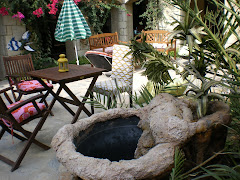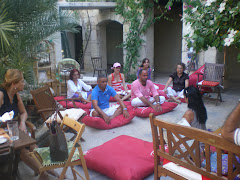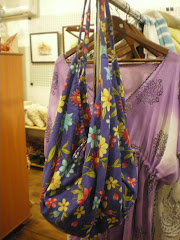

1. Kris, I am curious about your paintings reflect amazing bright colours and each one there is a story, tale or basic world of view besides your work of art. Could you tell me what is that your work of art is quite distinct from what we see as paintings around us.
My gnostic ethos is the reason for me painting: to show that we live within an illusion – that all is not how it appears. I believe, that to really see – we need to seek understanding through compassion and empathy and taking personal reasponsibility for our lives. I seek to express my deep feelings for the earth and the different earthlings that share the earth (animals). My painting also tries to promote equality for women. Is it any wonder the world is so crazy – when the more compassionate half of the population, women, are opressed and disrespected?
The use of colour is in my paintings is to help bring about a greater awareness of how important colour is – that it affects us emotionally and spiritually on a more profound level than we, at present, realise. The colours in my work reflect radiance, posativity, love, joy and a deep respect for nature.
2. As far as I know you have been more than 20 countries in the world, in your paintings we can see tree from USA or Spain just like tree from Mazi in Bodrum. Trees are also different according to where they live just like people… What do you think about being diffrent places in the world and how your paintings are affected of it?
I have visited over 25 countries in the world and many cities in those countries. The major benefit of those visits has been the opportunity to experience different ways of life, but most importantly, to see the world first hand – not through a distorted media.
We can imagine we know something of a country – but without meeting the people personally, with an open mind, our view tends to be coloured by what we think of the places history, what we were taught in school, what our parents think, what our governemnts want us to think. The world is such a fantastic place – but people – what ever creed or colour are the same. We all feel the same emotions, have similar aspirations - it is so obvious that we are all one, whether we like it or not.
Nature is never racist – biggoted, nationalistic or ignorant.

3. Could you please share with me how you met Sufi, Mevlana? And what is the reason you chose Mevlana’s ideas underline your paintings for 2010 exhibitions?
My partner has read much of Mevlana and many of my Turkish friends are greatly affected by his work, so I was eager to learn more after the obvious positive influence that he has made upon their lives and the great influence he has contributed to the Turkish mind-set.
I needed a way to relate my Shamanism to the Turkish viewer too, a way to show that Gnostisism in my country of origin is the same as the oriental one found in my choosen country. In researching Mevlana for myself, my view, that we all have a ‘common-sense’ at the root of all our thinking – was profoundly endorsed by Mevlanas words. The truth shines through and is obvious in the words of Gandhi as it is in the words of Mevlana. If we were true to the ethos of these great thinkers our world would change fundamentaly. Mevlana challenges us to question everything – to seek the truth and understanding of our universe. As humans, our main responsibilty is to understand and the only way to achieve that is to question everything.
4. In fact you are donated artist, you also know music well, you play in some bands. When you paint what do you prefer silence or music?
Yes, I am a muscian too and a poet and writer. I also grow some of my food, tend my garden – try and make beautiful my house and seek to be friendly and open to everyone I meet – wanting to understand people. When I drive I try and apply all I believe to the driving. I read as much as possible on as many different subjects as possible. My life is an expression of what I believe and practise. We all have the potential to be artistic in everything we do – from how we use thought to how we treat each other and the beings around us. Being artistic is only possible if we are open to inspiration – the true language of our universe. Music opens our minds to the universe, if we let it. The great philosphers of the ancient world knew this. To be a philosopher or even a scientist, you had to play music, write poetry – know astronomy – see how all things are connected. Music is truly a universal language, it is one I try and understand and embrace.
When I paint I need silence, or should I say harmony - peace. My music is often that of the nature around me: the woodpeckers, owls and frogs. Birdsong fills my studio. It is the music of peace. Other times I need something to move me more physically – through the emotive force of modern music – or the spiritual influence of Mercan Dede, for example.

5. Is it true that the deepest knowledge about something leads distinctive in all your works whatever you do because the only thing we can grow is knowledge about religions, history, philosophy and music of course what is your opinions?
Seeking knowledge is so important. We need to know the roots of everything: where religion came from, what shaped our world historically. We need to know how our own bodies work – how thought works, our emotions and senses – our opinions and failings. But most importantly – we need to understand. Understanding can only be gained through self reasponsibility. As an example: most people give the reasponsibilty of their health to the medical profession. They eat decaying bodies and the baby food of other beings and then expect a doctor to cure them of the illness that occurs after they do this. We teach our children to eat burgers and sweets and then want a dentist to fix the decay in their teeth. If we were reasponsible for our own health – we would eat fruit and vegetables, drink more water and not poison our bodies with coke and other sugary drinks. But it seems that many people do not want to think about this – they just want someone to cure them – instead of eleminating the cause of the desease from their lives. It is the same with our spiritual lives. Instead of being compassionate and empathetic in our dealings with others – we want a manger – a middle man (priest or imman) to tell us how to act, to give us rules instead of using our common-sense.
We wish to be hedonistic instead of thoughtful. Humankınd only needs morality and law because we refuse to govern ourselves.
6. Everyone who saw your paintings is surprised about your technique, they can not understand the dots are because of brush throwings or what?Can you enlighten us please?
I paint each circle – it is not pointalism – more circlelism. I am partly joking of course, but for me the circle represents the universe in everything: from each cell to a planet or star. The circle is symbolic of death and rebirth, the seasons, eyes, the sun, everything in nature in fact. The circle is the most important symbol to me and I try and express that in all my paintings. Some might call it style, but for me it is the expression of my ethos, my reason for living.

7. What is the reason you came in Bodrum first and how do you feel now after some years passed and you experienced tol ive in here, please tell us what your eyes see, how is different how is ugly, how is virgin, how is funny here? Surprising, great?
I first came to Bodrum about five years ago to attend a writers retreat. But from the moment I smelled the air and felt the sunshine on my skin – I only wanted to ‘be’ here. I love this place more than anywhere else I have been in the world. It is so beautiful, so chaotic and full of surprises on the one hand – so brilliantly thought out on the other. I love the nature, the culture and history. I love the generosity of the people – their way of embracing life with a certain unique passion. It is such a unique and wonderous place. I appreciate the openess and freedom – the simplicity of life and the fact that simplicity is still possible. I like that everything is forbidden and nothing is forbidden. The humour and the celebration. I admire Ataturk and his great influence, as perhaps the greatest leader of modern history. I love the food, the taste and smell of the fruits and vegetables – the nuts and seeds – raki! It is something I have never felt before – home.
I am afraid for the countryside – the repetition of mistakes made by the greedy industrialists of the west. I am afraid of the American governments lack of understanding of this part of our world – its bad intentions and its disregard for this great country (any country, or nationality actually). I am afraid for the village way of life, that it might be taken from them in exchange for money that easily slips away. Land is everything. Agriculture is the backbone, the foundation of any great nation. Iam afraid for Ataturks legacy at times. But I have confidence in all the many Turkic peoples – the wonderful mix of culture that pervades everything here.
8. I know you will be a great father to your son soon, what is your idea being a father in Bodrum do you think will it be a different from any other else in the world?
I think it will be different in many ways. I think it is a fantastic place to grow up in and have the opportunity to understand different ways of thinking and different culture – to know east and west. So many aspects are better here than in the UK. Old and young mix together and more often than not, respect each other. That is more healthy for me. The more natural way of life in our village. The fresh food, the sunshine and sea. To be surrounded by my partners wonderful family and all our friends. There are obsticles here which concern me. You cannot home school here – as you can in Europe, that is something that worries me greatly, not to have that freedom – but I understand why and the reasons for it out-way the negative aspects at this time. I am a humanist and pacifist, so military service is not something I want for my son, but who knows, by the time he is of that age – maybe we will have peace? I think most importanty – he will have both mentalities, a fusion of east and west – the possibilty to understand both and maybe better able to pass that on, to help build a new world...
9. What is your definition of “home”? Are you planning too much travel with your lovely wife Ekin and Kaia? Or you prefer reading more is enough after all, what do you think?
Home is Bodrum. Home is Gumusluk. Home is enjoying my life with my amazing partner. It is where I feel comfortable, accepted and free to be. It is being able to commune with nature – to swim in the Aegean, to lie on its shores. Sharing this with all those around me – the experience which is unique to these shores. I walk the paths of the ancients here – I feel their presense all around me...
I would love to be able to afford to travel with Ekin – to show her and Kaia the world – I think everyone should have that opportunity, but for me, if I never go anywhere else, Bodrum is more than enough. I have experienced many of the great cities of the world – but here in Gumusluk is everything I need...
























